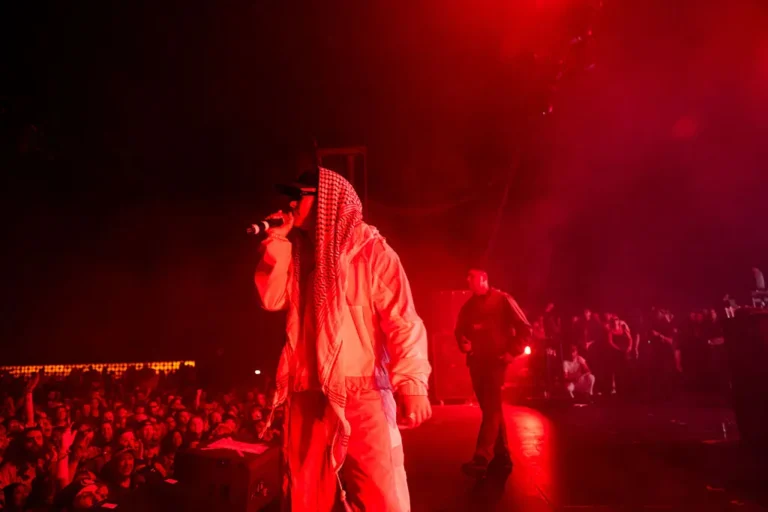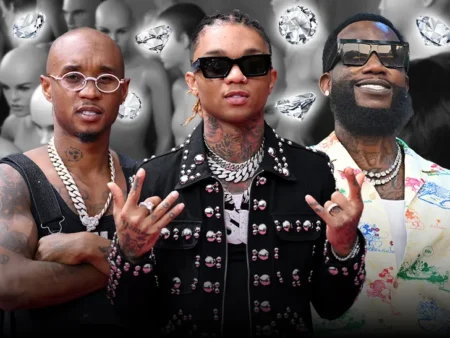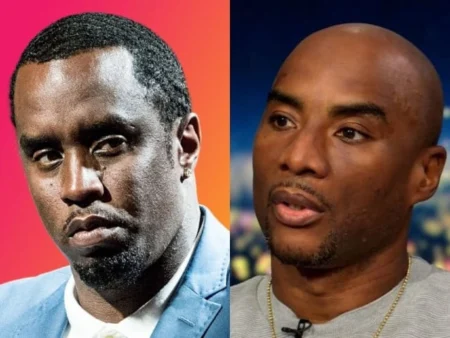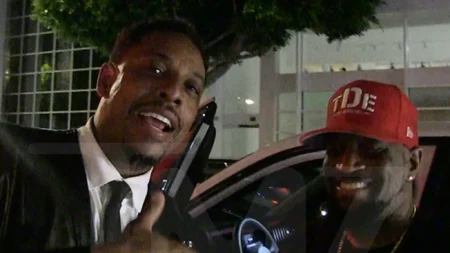INDIO, Calif. — Irish hip-hop trio Kneecap has found itself at the center of a global free speech debate after sparking major controversy during their Coachella 2025 performances.
The group — consisting of Mo Chara, Móglaí Bap, and DJ Próvaí — drew headlines for projecting anti-Israel messages condemning Israeli military actions in Gaza, while also criticizing U.S. political support for Israel. According to reports from Business Insider and other outlets, the protest led to immediate censorship of their first performance from Coachella’s official livestream.
The backlash was swift and fierce. Public figures, including Sharon Osbourne, called for the U.S. government to revoke Kneecap’s work visas, further intensifying scrutiny around the group’s future in America.
U.S. Agency Drops Kneecap Amid Visa Concerns
Following the uproar, Kneecap’s U.S. booking agency dropped them, casting serious doubt on their upcoming American tour. Without agency representation and amid visa issues, the trio faces mounting challenges to maintain their growing presence in North America.
Visa revocation could potentially derail their ability to perform in the U.S., threatening their access to one of the world’s largest music markets just as their fanbase was expanding.
History of Political Provocation
This is not the first time Kneecap has courted controversy. The group is well-known for infusing their music and performances with provocative political commentary. In 2023, the Scottish Sun reported that Kneecap allegedly encouraged concertgoers at a London show to “kill your local MP,” and voiced support for proscribed organizations such as Hamas and Hezbollah—both classified as terrorist groups by the UK and U.S.
Their London performance triggered investigations by UK counter-terrorism police, further entrenching their reputation as one of the most polarizing acts in contemporary music.
Kneecap Responds: “Coordinated Smear Campaign”
In response to the backlash, Kneecap has denounced what they describe as a “coordinated smear campaign” designed to silence their criticisms of what they allege are Israeli war crimes.
According to The Independent, the group maintains that their statements, while confrontational, are non-violent when compared to the scale of violence they attribute to Israeli operations in Gaza. They argue that their artistic expressions fall within the bounds of legitimate political protest and free speech.
Moreover, Kneecap has reported receiving death threats following their Coachella performances, underscoring the personal risk artists can face when engaging in politically charged activism on an international stage.
Despite Controversy, Popularity Soars
Despite—or perhaps because of—the controversy, Kneecap’s popularity continues to surge. The Guardian reports that their upcoming October 2025 tour across Canada and the U.S. is already sold out, suggesting a deepening base of fans who support their unapologetic approach to activism and art.
The trio remains adamant about using their platform to advocate for political causes they believe in, standing by their message of justice, human rights, and self-determination.
The Bigger Picture: Art, Politics, and the Limits of Expression
Kneecap’s Coachella controversy has reignited global discussions around the intersection of artistic expression, political activism, and freedom of speech.
Critics argue that public performances promoting support for proscribed organizations cross the line into incitement and deserve consequences. Supporters, meanwhile, defend Kneecap’s right to speak out against perceived injustices, especially on international stages where such conversations can reach wider audiences.
As political tensions continue to ripple across the entertainment world, Kneecap’s defiant stance at Coachella 2025 could become a defining moment for how artists engage with global politics—and how institutions respond when artistic expression challenges powerful interests.
Stay tuned for more updates as Kneecap navigates the fallout from their Coachella performance and the future of their U.S. tour remains uncertain.







